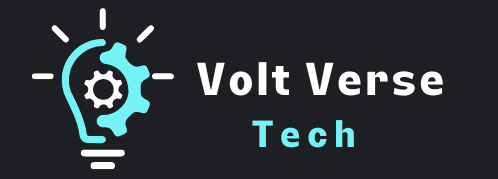In the ever-evolving landscape of the gaming industry, artificial intelligence (AI) has taken center stage in shaping the future of game development. One of the most exciting aspects of AI’s role in gaming is the emergence of AI game generators, a revolutionary technology that is transforming the way games are created and experienced. In this article, we’ll dive into the world of AI game generators, exploring the top 5 options available, each with its own unique features and capabilities.
Table of Contents
Top 10 AI Game Generator
GPT-4 Game Generator
- Features:
- Artistic Content Generation: Rosebud.ai focuses on generating high-quality art assets, from character designs to in-game landscapes.
- Art Style Customization: Developers can specify the art style and aesthetic they want, and Rosebud.ai will create accordingly.
- Rapid Art Prototyping: It accelerates the art creation process, reducing development time.
- Integration: Rosebud.ai can be easily integrated into popular game development tools.
- Realistic Visuals: The AI ensures the creation of stunning and visually appealing game elements.
- Official Website: GPT-4
Unity’s CineCast Game Generator

- Features:
- Dynamic Cinematic Experiences: CineCast allows developers to create dynamic cinematic scenes, enhancing storytelling.
- Real-Time Adaptation: The AI can adjust the narrative and camera angles in real-time based on the player’s actions.
- Personalized Storytelling: CineCast can tailor the game’s narrative to each player, ensuring a unique experience for all.
- Scene Generation: It can automatically generate scenes, camera movements, and character animations.
- Compatibility: CineCast seamlessly integrates with Unity, one of the most popular game engines.
- Official Website: Unity’s CineCast
Autodesk’s Bifrost Game Generator

- Features:
- Procedural World Building: Bifrost excels in creating vast, procedurally generated game worlds with stunning visual fidelity.
- Physics Simulation: It offers advanced physics simulations for realistic interactions within the game environment.
- In-Depth Character AI: The AI can generate complex behavior patterns for non-playable characters (NPCs).
- Dynamic Weather Systems: Bifrost creates dynamic weather systems, adding realism to the gaming experience.
- Cross-Platform Compatibility: It supports multiple platforms, making it versatile for game developers.
- Official Website: Autodesk’s Bifrost
Nvidia’s GAN-Generated Art Game Generator

- Features:
- Artistic Content: Nvidia’s GAN (Generative Adversarial Network) can generate stunning and unique in-game art, from textures to landscapes.
- Art Style Customization: Developers can fine-tune the AI to create art in specific styles or genres.
- Rapid Prototyping: It expedites the game development process by automating the creation of visual assets.
- Realistic Textures: The AI produces high-quality textures for game objects and characters.
- Collaboration: GAN-Generated Art can be easily integrated into game development pipelines.
- Official Website: Nvidia’s GAN-Generated Art
IBM’s Watson for Game Development

- Features:
- Natural Language Processing: Watson can understand and generate dialogue, enabling realistic conversations between players and NPCs.
- Voice Recognition: It supports voice commands and interactions for a more immersive gaming experience.
- Game Analytics: Watson provides valuable insights into player behavior, helping developers refine their games.
- Personalization: It tailors in-game experiences based on individual player preferences.
- Cross-Platform Support: Watson can be utilized across various gaming platforms.
- Official Website: IBM’s Watson for Game Development
Ludo.ai

- Features:
- Procedural Game Generation: Ludo.ai specializes in creating procedurally generated games, ensuring a variety of gameplay experiences.
- Game Mechanics: It can design and optimize game mechanics, creating engaging challenges for players.
- Cross-Platform Integration: Ludo.ai seamlessly integrates with various platforms and game engines.
- AI Opponents: The AI can generate intelligent and challenging AI opponents for single-player games.
- Game Balancing: Ludo.ai offers tools for balancing gameplay and difficulty levels.
- Official Website: Ludo.ai
Rosebud.ai

- Features:
- Artistic Content Generation: Rosebud.ai focuses on generating high-quality art assets, from character designs to in-game landscapes.
- Art Style Customization: Developers can specify the art style and aesthetic they want, and Rosebud.ai will create accordingly.
- Rapid Art Prototyping: It accelerates the art creation process, reducing development time.
- Integration: Rosebud.ai can be easily integrated into popular game development tools.
- Realistic Visuals: The AI ensures the creation of stunning and visually appealing game elements.
- Official Website: Rosebud.ai
Layer.ai

- Features:
- Level Design: Layer.ai excels in designing game levels, mazes, and puzzles for a diverse gaming experience.
- Puzzle Generation: It can generate intricate puzzles and challenges for puzzle-based games.
- Real-Time Level Adjustment: The AI can adapt level difficulty based on player performance.
- Cross-Platform Compatibility: Layer.ai is compatible with a wide range of gaming platforms.
- Collaboration: It supports collaborative game level design and development.
- Official Website: Layer.ai
Hotpot.ai

- Features:
- Asset Generation: Hotpot.ai focuses on generating 3D models, textures, and animations for games.
- Realistic Physics: It offers realistic physics simulations for in-game objects and environments.
- Cross-Platform Integration: Hotpot.ai seamlessly integrates with various game engines and platforms.
- AI-Driven NPCs: The AI can create intelligent non-playable characters with complex behavior patterns.
- Efficiency: Hotpot.ai speeds up the game development process by automating asset creation.
- Official Website: Hotpot.ai
Leonardo AI

- Features:
- Natural Language Storytelling: Leonardo AI is proficient in generating narrative-driven game stories and dialogues.
- Character Creation: It can create a diverse cast of in-game characters with unique personalities and backgrounds.
- Dynamic Quests: The AI can generate a variety of quests and challenges for players.
- Realistic Conversations: Leonardo AI ensures interactive and engaging dialogues within the game.
- Compatibility: It seamlessly integrates with popular game engines, making it accessible to developers.
- Official Website: Leonardo AI
AI Game Generators Comparison
| Name | Key Features | Official Website |
|---|---|---|
| GPT-4 | Natural language game narrative, character development | GPT-4 |
| Unity’s CineCast | Dynamic cinematic storytelling, real-time narrative adaptation | Unity’s CineCast |
| Autodesk’s Bifrost | Procedural world generation, advanced physics simulations | Autodesk’s Bifrost |
| Nvidia’s GAN-Generated Art | Art asset generation, realistic textures | Nvidia’s GAN-Generated Art |
| IBM’s Watson for Game Development | Natural language interactions, voice recognition | IBM’s Watson for Game Development |
| Ludo.ai | Procedural game generation, AI opponents | Ludo.ai |
| Rosebud.ai | Artistic content generation, art style customization | Rosebud.ai |
| Layer.ai | Level design, puzzle generation | Layer.ai |
| Hotpot.ai | Asset generation, realistic physics | Hotpot.ai |
| Leonardo AI | Natural language storytelling, dynamic quests | Leonardo AI |
Also Read : AI Trends to Watch in 2023
Conclusion:
These AI game generators are collectively pushing the boundaries of game development, offering a diverse range of features to empower developers in creating immersive and captivating gaming experiences. From procedural game generation to artistic content creation, level design, and asset generation, each tool brings its unique capabilities to the table.
As AI continues to advance and become more accessible, it’s an exciting time for both developers and gamers. The synergy between human creativity and AI-driven efficiency is set to redefine the gaming industry, opening up new possibilities for game design, storytelling, and visual aesthetics. With these AI game generators and others like them, the future of gaming is bound to be filled with innovative and engaging experiences. Developers and players alike can look forward to an era of unprecedented creativity and gameplay possibilities.
Frequently Asked Questions (FAQs)
- Is there an AI game generator?
- Answer: Yes, there are several AI game generators available that leverage artificial intelligence to create game content, narratives, and more. These tools are increasingly used in game development to enhance efficiency and creativity.
- Which is the best AI video generator?
- Answer: The choice of the best AI video generator depends on your specific requirements. There are various AI tools for video generation, but determining the “best” one depends on factors like your project’s needs, the genre of the game, and the desired outcome. You can explore options such as Unity’s CineCast for cinematic storytelling or Nvidia’s GAN-Generated Art for visual content generation.
- Which game has the best AI?
- Answer: The quality of AI in games can vary widely. Some notable games known for their impressive AI include “Half-Life 2,” which featured innovative NPC behavior, and “F.E.A.R.” for its advanced enemy AI. However, the perception of “best” AI can be subjective, as it depends on the specific aspects of AI behavior you value in a game.
- How do AI game generators impact game development?
- Answer: AI game generators have a significant impact on game development by speeding up content creation, enhancing storytelling, and optimizing game mechanics. These tools allow developers to create more diverse and engaging gaming experiences while saving time and resources.
- Are AI game generators accessible to indie game developers?
- Answer: Yes, many AI game generators are becoming more accessible to indie game developers. Some AI tools offer affordable pricing or free access to their basic features, making it easier for smaller development teams and independent creators to leverage AI in their games. However, the level of accessibility may vary from one tool to another, so it’s essential to explore the options that suit your budget and project needs.

Nouman Satti is a tech visionary on a mission to demystify the world of AI at Volt Verse Tech. With a passion for innovation and a knack for translating complex concepts into simple, actionable insights, Nouman is your guide to navigating the ‘nice’ side of AI. From neural networks to the latest breakthroughs, he’s your trusted source for all things tech. Join him on a journey into the future of artificial intelligence, one insightful article at a time.

